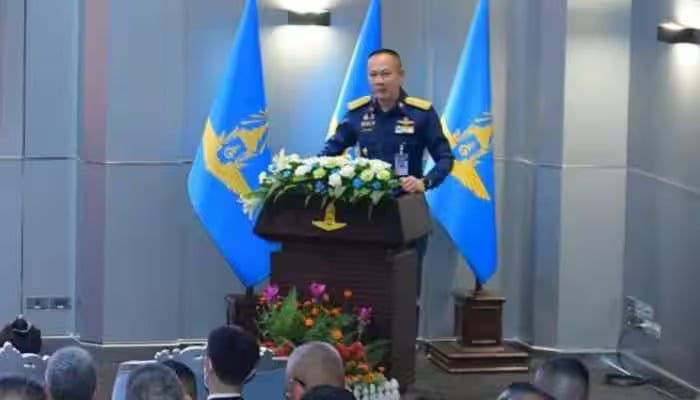The Royal Thai Air Force (RTAF) has praised the Indian Air Force’s (IAF) execution of precision strikes during the May 2025 conflict with Pakistan, highlighting the operation as a significant benchmark in modern air warfare. Speaking at a recent RTAF-led strategic conference in Bangkok, Deputy Chief of Air Staff (Intelligence) Air Marshal Sommai Leelitham emphasized the failure of Pakistan’s air defense systems and commended India’s tactical evolution and operational precision.
The conflict, triggered by a terrorist attack in Jammu and Kashmir’s Pahalgam on April 22 that killed 26 civilians, escalated after India launched Operation Sindoor on May 7. The operation involved coordinated missile and air strikes on nine high-value targets in Pakistan and Pakistan-occupied Jammu and Kashmir, including militant infrastructure belonging to groups like Jaish-e-Mohammed and Lashkar-e-Taiba.
In a move not seen since the 1971 war, India struck targets across the international border using its frontline Rafale jets, BrahMos cruise missiles, and Israeli-origin loitering munitions. On May 8 and 9, the IAF followed up by targeting Pakistani air defense assets, including radars and command-and-control centers around Lahore and other key regions. Indian Sukhoi Su-30 MKIs, armed with precision munitions, carried out deep strikes that caused substantial damage to PAF installations.
Despite claims by Pakistan of having downed Indian aircraft, Indian forces sustained minimal losses. This was attributed to real-time tactical shifts, improved inter-service coordination, and effective use of satellite surveillance. Indian officials released post-strike satellite images showing significant destruction at targeted locations, further validating mission success.
Air Marshal Leelitham remarked that the Indian Air Force’s ability to conduct multiple successful sorties without any confirmed aircraft loss underscored a “clear collapse” of Pakistan’s integrated air defence and a commendable shift in India’s air combat doctrine.
The four-day conflict ended with a ceasefire on May 10, after Pakistan’s Director General of Military Operations reportedly reached out to his Indian counterpart requesting a cessation of hostilities. Analysts worldwide acknowledged India’s operational superiority and strategic restraint during the limited conflict.
Operation Sindoor has since emerged as a focal point for military think tanks and air forces across Asia. The Thai Air Force’s public recognition of India’s success reflects the growing influence of Indian military doctrine and the changing dynamics of regional deterrence.
This conflict marks a transformative moment for the Indian Air Force, setting a new precedent for cross-border precision engagement while reinforcing India’s policy of calibrated but firm response to terrorism.











